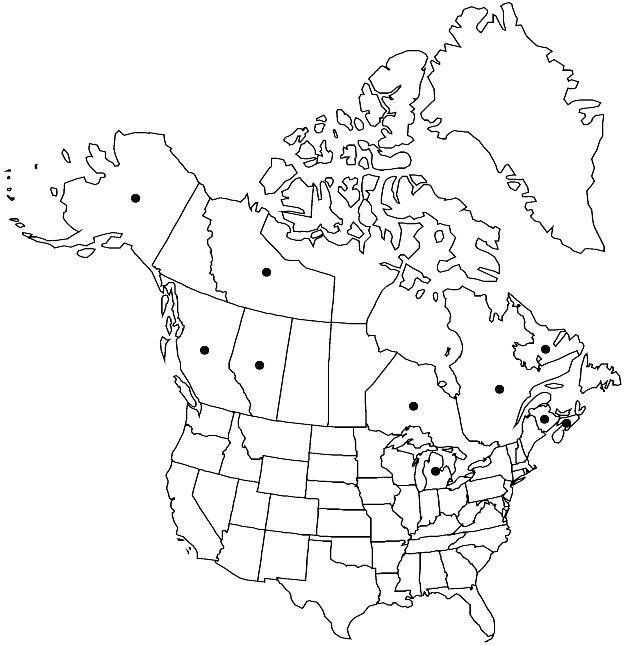Splachnum rubrum
Sp. Musc. Frond., 56. 1801.
Plants light green or yellow-green. Stems 1.5–3.5 cm. Leaves somewhat crowded at stem apices, obovate, 5–7.5 mm; margins coarsely serrate distally, toothed nearly to base, indistinctly bordered; apex long-acuminate; costa disappearing in acumen somewhat before apex. Seta orange-red, 5–13 cm, straight. Capsule urn orangebrown, 1–1.5 mm; hypophysis bright magenta red, convex-umbrelliform, much wider than urn, smooth; operculum hemispheric, blunt; exostome teeth inserted below mouth, not connate or in pairs, brownish or orangebrown. Spores subspheric, 11–13 µm, yellow-green.
Phenology: Capsules mature summer.
Habitat: Dung of large boreal herbivores (such as moose), muskeg, boggy habitats
Elevation: low to moderate elevations
Distribution

Alta., B.C., N.B., Nfld. and Labr. (Labr.), N.W.T., N.S., Ont., Que., Alaska, Mich., n Eurasia
Discussion
The magenta red, almost iridescent hypophysis on a long seta gives Splachnum rubrum the appearance of a flower. The hypophysis is convex-umbrelliform, unlike the discoid-umbrelliform hypophysis of S. luteum, and 6–11 mm wide. As in S. luteum, the young sporophytes of S. rubrum resemble the mature sporophytes of S. sphaericum and immature sporophytes of S. ampullaceum. The leaves of S. rubrum are less broadly obovate than those of S. luteum or S. sphaericum. Of the mainly boreal North American species of Splachnum, this species is by far the rarest; the plants are often found growing intermixed with S. luteum.
Selected References
None.